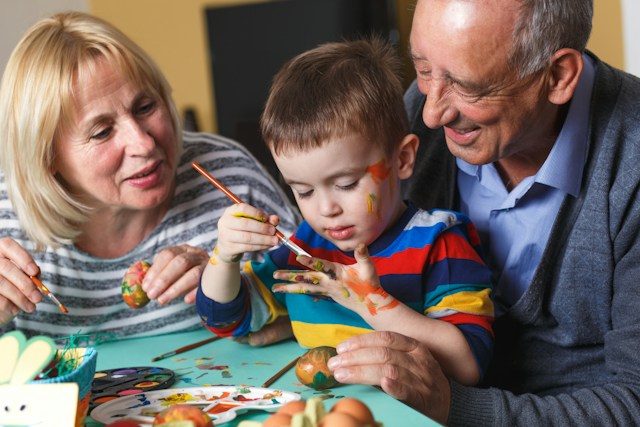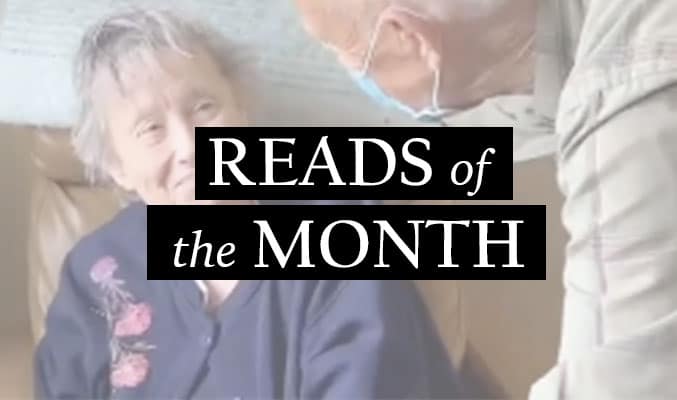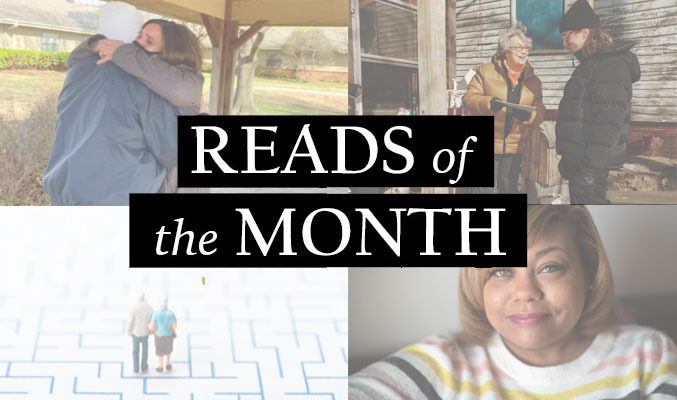Dementia can be tough for young family members to get their heads around. Here are some strategies for explaining a dementia diagnosis to kids.
Dementia can be tough for young family members to get their heads around. Here are six pieces of guidance from children’s book authors who’ve found smart, creative ways to tackle the daunting task of explaining dementia to a kid.
1. Be open about dementia
According to dementia communicator Matthew Adams, the right language can help younger family members understand what’s happening, feel reassured, and work through their emotions about it. He and his wife previously ran an online project allowing families to create personalized picture books about dementia, designed to help kids understand the disease, and cope with it.
“While the news that a loved one has dementia may be distressing, children may be relieved to know that the person’s behavior is being caused by dementia and is not directed toward them,” dementia communicator Matthew Adams told Being Patient.
2. Explain dementia is an illness
Julissa Cruz Gómez, a Dominican doctor in the Netherlands, also needed a better way to explain dementia — and make it less scary — for younger family members. She wrote a book to help explain the disease to her niece.
In “Why Does Granny Forget Things: A Trip to the Brain,” a sister and brother enter the brain of their grandma who has dementia and travels to the different parts of the brain, like the region responsible for memory called the hippocampus, that are affected by the disease.
Explaining what is going on in the brain can help reassure kids and help them have a healthy relationship with their loved ones who have dementia, she said.
“If you have this book as a child and you can read and with the guidance of your family, you know in your childhood what you have to do, how you can interact with your grandma or your grandfather or your aunt — with people with dementia,” Cruz Gómez told Being Patient.
Experts from Banner’s Alzheimer’s Institute also suggest focusing on symptoms in your explanation. Forgetting things, for example, might be more relatable for kids who have probably misplaced toys or other objects themselves.
3. Encourage questions
Banner experts also recommend encouraging kids to ask any questions that they might have. A child might wonder, for example, whether they could catch dementia by interacting with their loved ones. They might ask if dementia hurts, or if their grandparent will forget them. It is important to be honest with kids and not sugarcoat answers.
“They [children] are really, really intelligent and they have a kind of intuition,” Cruz Gómez said. “They know that something is going wrong, so you have to tell the truth.”
If you aren’t sure how to answer these questions, you can check out the Alzheimer’s Association’s “Parent’s Guide,” or get in touch with your doctor, who might be able to help explain some of the trickier questions.
4. Reassure kids and validate their feelings
Ensure that kids know it is okay to feel scared, anxious, or sad. Asking children how they feel about the situation can help you determine how best to reassure them.
The Banner Institute team also recommends sharing your feelings and emotions, to show children they’re not alone in their concerns.
5. Keep the relationship active
Kids can still have a lot of fun and participate in activities with their relatives, even if diagnosed with dementia. Teens can, too. In the earlier stages of the disease, a person living with dementia will still be able to engage in some or all of their favorite activities.
In later stages, kids can use music, books, photos, and other familiar forms of media to reminisce with their loved ones.
At any age, there’s a great deal we can learn from our loved ones with dementia. Spending time with one’s younger relatives can help folks living with dementia, too: staying socially active and engaged is an evidence-backed way to stave off cognitive decline.
Christiana Egi, owner of Alexis Lodge in Ontario, Canada, a residential care center for people living with dementia, and author of children’s books, said many families stop visiting their loved-one with dementia once they are placed in a residential care center.
“I can tell you that almost 70 percent of their families don’t turn up,” Egi said of residents at Alexis Lodge. “Some people say ‘Oh, I don’t want to see my mom like this’ or ‘I don’t want to remember them like this,’ so they don’t visit.”
Christiana Egi: Breaking Down Dementia’s Stigmas for the Young and Old
6. Find a book or learning resource
Children’s books can be a powerful tool to distill information about a complex subject like dementia. Amanda Sullivan, a pediatric psychotherapist, wrote Leaf, a children’s book that commemorates the life of her mom who passed away in 2022 from frontotemporal dementia when she was struggling to find any age appropriate books on the topic for her own children.
“I wanted to normalize it for kids. I wanted them to feel like their experiences and their emotions were happening to other people, and they weren’t alone,” Sullivan said of her motivations for writing Leaf.
“I’ve tried my best to be honest with the kids and tell them what was happening in an age appropriate language and really just allow them to be able to express their feelings about it,” Sullivan said.
LEAF: Amanda Sullivan’s Book to Help Young Readers Understand FTD
Egi, who was featured in the local news after her first children’s book, A Rose for Grandma, was published, said efforts to demystify dementia through her children’s books have led to adults reaching out to her as well.
“A family friend called me and he said I didn’t even know that dementia or Alzheimer’s affects Black people,” Egi said.




